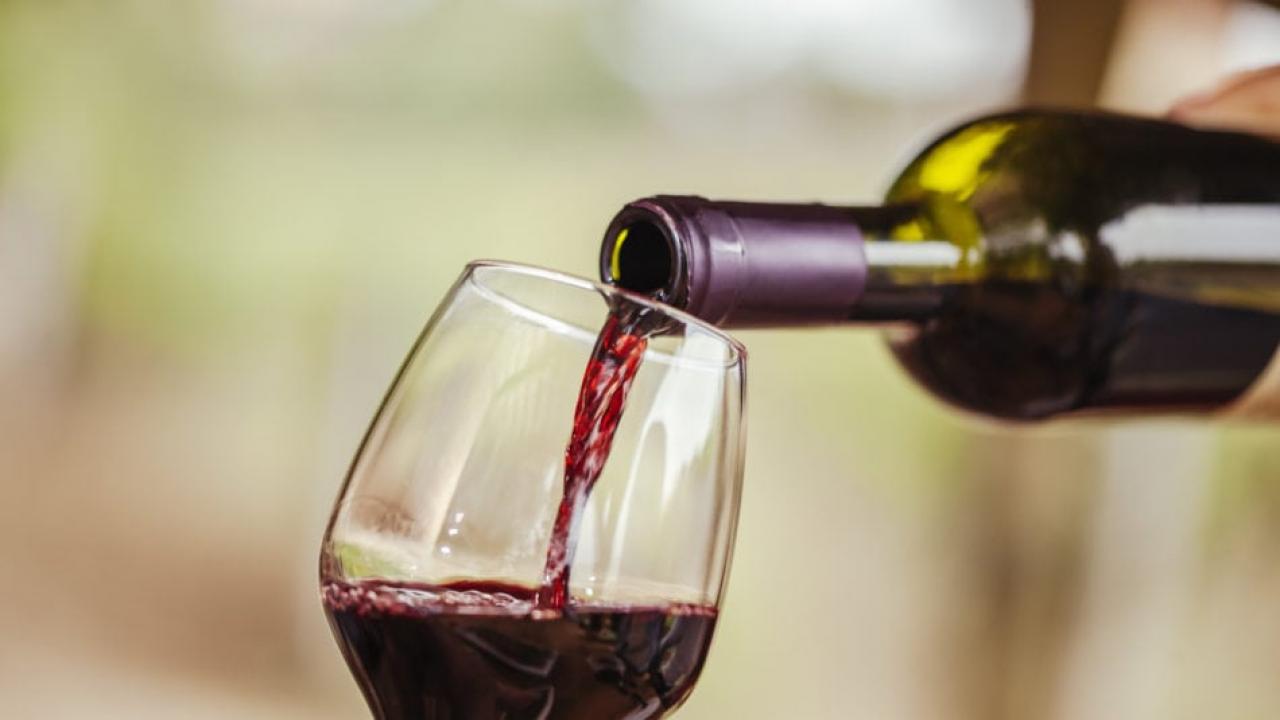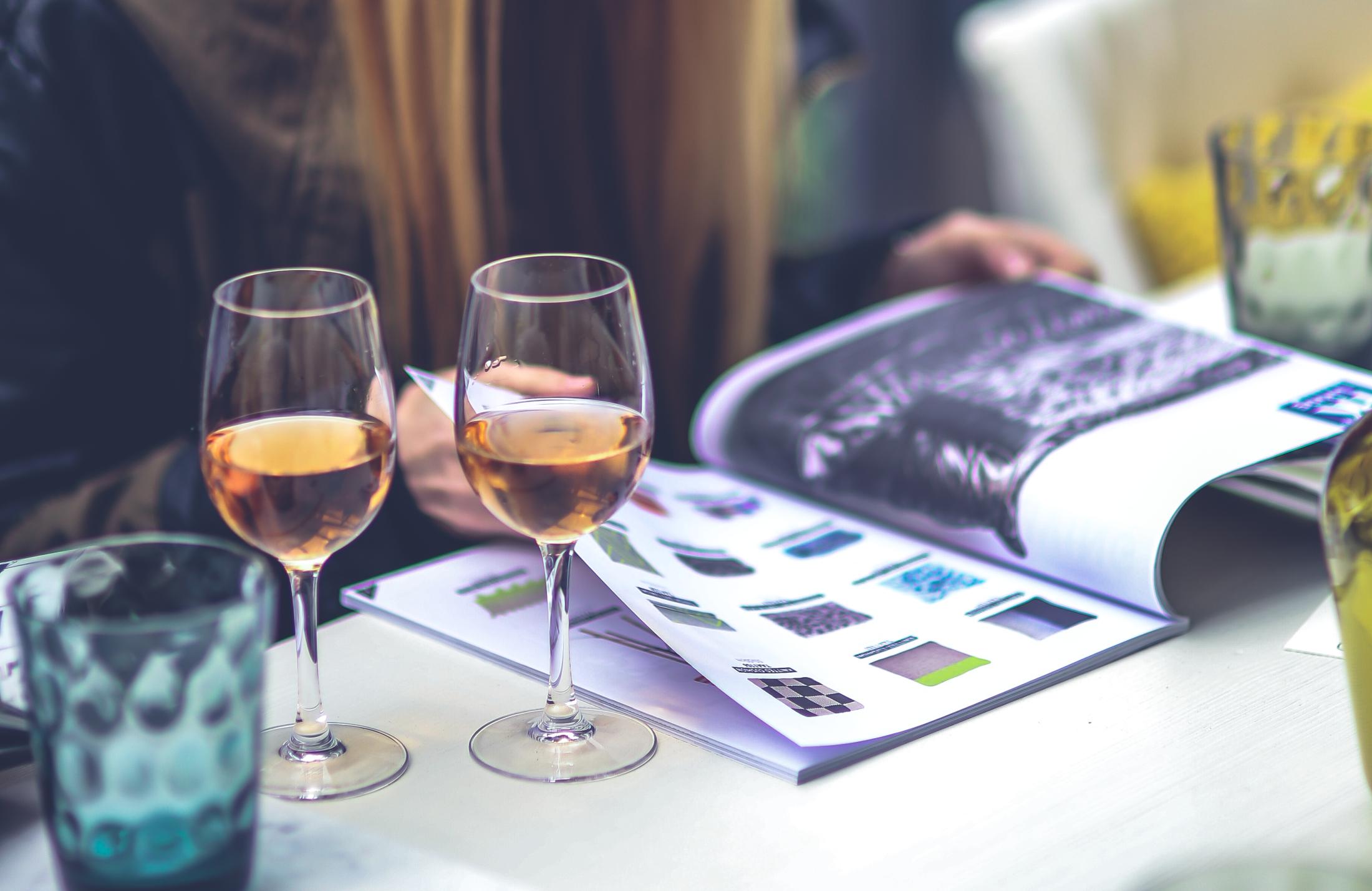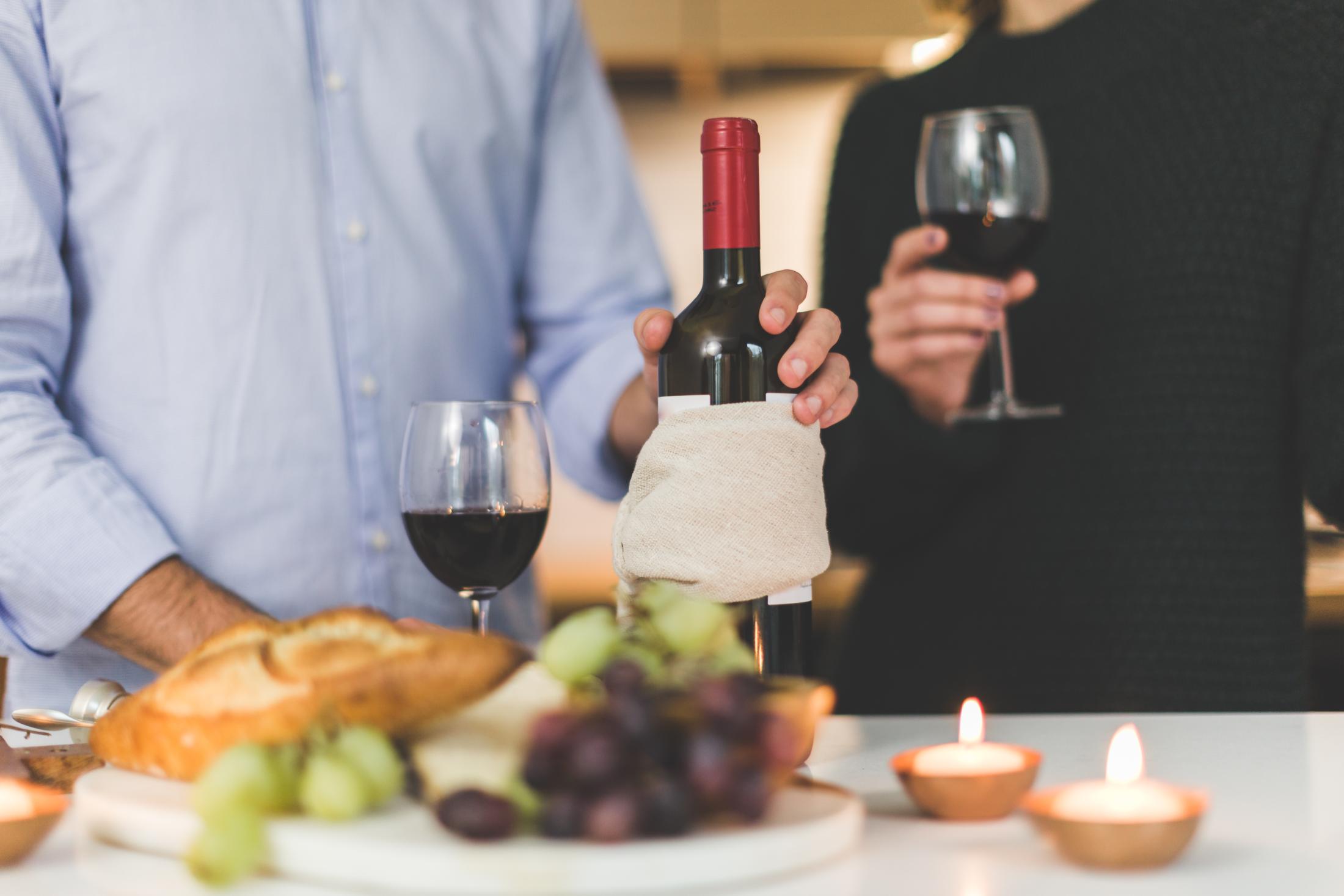
Wine Won’t Make You Smarter, But Your Brain Plays A Big Role in Tasting
You might have noticed this headline circulating on the Internet:
"Drinking wine makes you smarter!"
As graduate students, we wish! These claims stem from an interview with Yale neuroscientist Dr. Gordon Shepherd on his new book, Neuroenology: How the Brain Creates the Taste of Wine. Unfortunately for wine lovers, these articles ran away with Dr. Shepherd's take on the complex nature of taste.

The claim with the most mileage is that tasting wine is better for your brain than doing math problems or listening to music. Dr. Shepherd mentions these activities as reference points to demonstrate the complexity of tasting. But in an interview with us, he stressed that whether or not tasting is more engaging than math or listening is solely speculation. Indeed, the book makes no claims about the superiority of drinking wine over other activities. Dr. Shepherd's writings are based on a series of peer-reviewed studies about the intricate science of tasting. Here's what the experts agree on: 1) Flavor isn't intrinsic to food; the brain is what creates the perception of flavor. This is similar to pain. A hot object is not inherently a painful item, but if you touch something hot, your body detects a potential source of harm and activates a set of neural pathways, which create the sensation of pain. Likewise, when you taste something, your brain is responsible for processing and synthesizing all of the sensory inputs into a "flavor" that you perceive.
"Flavor is different from taste."
To sensory scientists, flavor is different from taste. Taste strictly refers to the sensations of sweet, sour, salty, bitter, or umami (savory). On the other hand, flavor results from a combination of tastes, aromas, and other senses. Even feel, sight, sound, and memory can contribute! For example, artificially changing the color of white wine to red makes us perceive the flavor differently. Flavor requires the integration of all of our senses, each with its own mechanisms and pathways, why is partly the reason so many regions of the brain are activated during tasting.
2) Eating is a surprisingly complex physiological process, and most of it happens unconsciously. For instance, mechanically manipulating and swallowing food requires fine motor control of muscles from the face, tongue, and throat, which the brain must coordinate with breathing and multiple sensory inputs. Smell alone is more complicated than first meets the nose. When most of us think about smelling our food, we imagine sniffing our meal as it lies in front of us; this type of smelling is called orthonasal However, a huge part is played by retronasal smell, which occurs when we breathe out and bring the air in our mouth to our nose. This brings volatiles, (i.e. airborne particles) from the food we're eating to our olfactory receptors, which recognize the volatiles and integrate them into our flavor perception.
"[It's] like wiggling your hand around to find an object."
Since the brain must synthesize these many inputs to create the sensation of flavor, the tasting of food and wine is considered an active process. This makes tasting less like feeling a touch on your hand, and more like wiggling your hand around to find an object. Dr. Shepherd notes, As a physiologist, to me that is the fascinating part.
3) Neuroenology focuses specifically on the motor activity of manipulating wine, like the swishing of liquid with the tongue. But these same principles apply to the tasting of any food. So, does this mean that eating or drinking literally anything will make us "smarter"? Unfortunately, no. All this really means is that the act of tasting is a very rich sensory experience that involves many areas of the brain.

Keep in mind that heightened brain activity is not always a good thing! Dr. Shepherd writes that "there is evidence that in rodents fed on a high-sugar diet, brain cells are activated in areas such as the insula and the OFC, which are also activated by an addiction to cocaine." We can all probably agree that binging on sugar and cocaine to become smarter won't work out.
"The very concept of 'intelligence' is controversial."
That said, a study on master sommeliers did find that the regions of their brains involved in smelling were denser compared to non-experts. Master sommeliers also exhibited increased levels of brain activity during non-wine related smelling tests. So, it's true that developing an expertise can cause actual physiological changes to the brain. As an expert in a particular field, your brain structure could become specialized in a similar way, but this does not necessarily equate to intelligence. The very concept of intelligence is controversial and difficult to measure or quantify.
"There is no magic food or drink that will make you smarter."
Furthermore, master sommeliers are extremely skilled at what they do. There are only 236 master sommeliers in the world, and this dearth isn't due to a lack of interest. Master sommeliers must pass a series of notoriously difficult tests, including blind wine tastings, in which they're required to accurately identify everything from the kind of grapes used, where the grapes came from, aromas present, alcohol and acidity levels, and more. We shouldn't conflate their years of dedication and active training with our everyday wine tasting; their brains exhibit these qualities due to their rigorous training and preparation, not due to exposure to wine. We also caution that the authors consider this a pilot study on a small group of people who were not age-matched, and they recommend more studies to follow up on these findings. (For more, check out the studies on musicians, perfumers, or London taxi drivers)
"Working on flavor is a wonderful way to exercise your brain."
So what's the takeaway? There is no magic food or drink that will make you smarter. Rather, hard work and repetition will cause certain functional areas of your brain to develop in ways that can enhance specific skills. However, refining your tasting abilities can be an enjoyable way to develop greater sensory-cognitive skills. As Dr. Shepherd suggests, "working on flavor is a wonderful way to exercise your brain."
Lynn Ly, Debbie Fetter, and Colin Shew are graduate students at the University of California in Davis. This post was written as part of a project called "Science REALLY says" which seeks to ensure scientific data is accurately represented by the media. For more content from the UC Davis science communication group "Science Says", follow us on twitter @SciSays and like us on facebook.
Acknowledgements
We thank Dr. Gordon Shepherd (professor of neuroscience at Yale and author of Neuroenology: How the Brain Creates the Taste of Wine) for helpful comments.
References
Shepherd, G. M. (2015). Neuroenology: how the brain creates the taste of wine. Flavour, 4(1), 19. https://doi.org/10.1186/s13411-014-0030-9 Small, D. M. (2012). Flavor is in the brain. Physiology and Behavior, 107(4), 540-552. https://doi.org/10.1016/j.physbeh.2012.04.011 Spence, C. (2013). Multisensory flavour perception. Current Biology, 23(9), R365-R369. https://doi.org/10.1016/j.cub.2013.01.028 Munoz-Gonzalez, C., Rodriguez-Bencomo, J. J., Moreno-Arribas, M. V., & Pozo-Bayon, M. A. (2011). Beyond the characterization of wine aroma compounds: Looking for analytical approaches in trying to understand aroma perception during wine consumption. Analytical and Bioanalytical Chemistry, 401(5), 1501-1516. https://doi.org/10.1007/s00216-011-5078-0 Silva Teixeira, C. S., Cerqueira, N. M. F. S. A., & Silva Ferreira, A. C. (2016). Unravelling the olfactory sense: From the Gene to Odor Perception. Chemical Senses, 41(2), 105-121. https://doi.org/10.1093/chemse/bjv075 Banks, S. J., Sreenivasan, K. R., Weintraub, D. M., Baldock, D., Noback, M., Pierce, M. E., Leger, G. C. (2016). Structural and Functional MRI Differences in Master Sommeliers: A Pilot Study on Expertise in the Brain. Frontiers in Human Neuroscience, 10(August), 1-12. https://doi.org/10.3389/fnhum.2016.00414 Shepherd, G. M. (2017). Neuroenology: How the Brain Creates the Taste of Wine. NEW YORK: Columbia University Press. Retrieved from http://www.jstor.org/stable/10.7312/shep17700

Comments